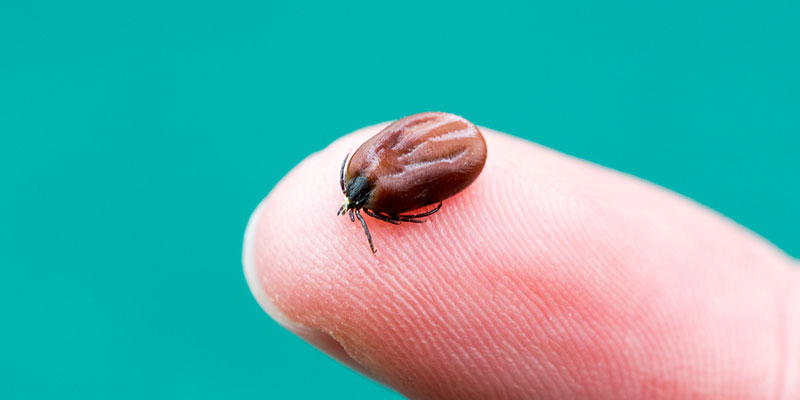
Causes, Dangers, and Care For An Untimely Menopause
Jan 10, 2023
As women age, hormones like estrogen and progesterone that are crucial to female reproduction decline in production. When these hormones drop low enough, a woman's periods will cease occurring permanently.
Once a woman has gone 12 months without having her period, she is considered to have entered menopause. In the United States, the average age at which a woman enters menopause is 51.
Nonetheless, menopause can start much earlier than expected for certain people. Early menopause can occur in women between the ages of 35 and 45 if they haven't had a period for three months. Find out what causes this and how to fix it in the following paragraphs.
What's The Difference Between Early Ovarian Failure And Premature Menopause?

Even though the two phrases are sometimes used interchangeably, early menopause and ovarian failure are different conditions. Today, medical professionals use the term "primary ovarian insufficiency" when discussing premature ovarian failure.
The symptoms of POI include the sudden or unexpected cessation of menstruation. Unlike premature or early menopause, there is hope for a return of periods with POI.
Ovulation, menstruation, and pregnancy are all possible for people with POI. Loss of the capacity to ovulate, menstruate, and subsequently have children is a common side effect of menopause, especially if it comes on too soon.
What Causes Menopause To Happen Early?
The causes of early menopause are similar to those of premature menopause. Cancer therapy, operations, and other medical issues fall within this category. However, the root of the problem isn't always obvious.
Menopause can be brought on by anything interfering with ovarian function or preventing estrogen production. Many of the symptoms of menopause are also shared by early and premature menopause. Premature or early menopause can have a variety of causes.
- Cancer treatment with chemotherapy or radiation.
- Surgery to remove your ovaries.
- Uterectomy surgery.
- Premature menopause runs in the family.
- Having your first period before the age of 11.
Can You Tell If You're Entering Menopause early?
Many women have years of menstrual cycle irregularity leading up to their final menstruation. Some of the earliest indicators of menopause are changes in menstrual cycle length, menstrual irregularities, and vaginal bleeding. Consult a doctor if your menstrual cycle is erratic. Many of the usual menopausal symptoms also characterize the onset of menopause too soon. There's a chance you'll go through these things:
- Sweaty spells.
- Nighttime perspiration
- Vaginal dryness and pain during sex.
- Urge to go to the bathroom often.
- UTIs more often.
How Do You Treat Early Menopause?
The cause of early menopause is an important consideration when deciding how to treat early or premature menopause. Early menopause is connected with several health problems. Thus doctors typically prescribe hormone replacement treatment unless there's a good reason not to.
Hormone replacement therapy helps restore natural hormone levels. This lessens the severity of menopausal symptoms and the danger of developing health problems associated with premature menopause. Doctors routinely prescribe HRT until a patient reaches the age of 51.
What Can I Do To Delay Menopause?
The majority of what might bring on menopause early is beyond your control. It has been found that smoking cigarettes are the only modifiable lifestyle risk associated with a premature onset of menopause. If you smoke, you increase your chances of experiencing menopause. Other reasons for menopause, such as health problems, surgeries, or cancer therapy, are also inescapable.
How Serious Is The Threat Of Early Menopause?

When menopause hits early, it can hit hard. Sexual dysfunction or a breakdown in romantic relationships may result from these symptoms. Those who enter menopause at an unusually young age go without estrogen's positive effects for longer. Certain diseases and disorders are more likely to manifest without adequate estrogen levels.
- Osteoporosis.
- Coronary illness.
- Depression.
- Dementia and Parkinson's.
Premature Or Early Menopause, May I Become Pregnant?
The inability to ovulate before menopause makes it difficult, if not impossible, for a woman to become pregnant before menopause. However, you can't get pregnant till you've gone 12 months without menstruation.
This is because ovulation may still occur in the years leading up to your last menstruation or if you have POI. Consult a fertility professional to discuss your choices if becoming pregnant or starting a family is a priority.
With the help of in vitro fertilization, pregnancy is possible even after menopause. Either your eggs or donor eggs can be used. After menopause, it's pretty unlikely that any remaining eggs will be fertile. Choices like surrogacy and adoption are also available.




